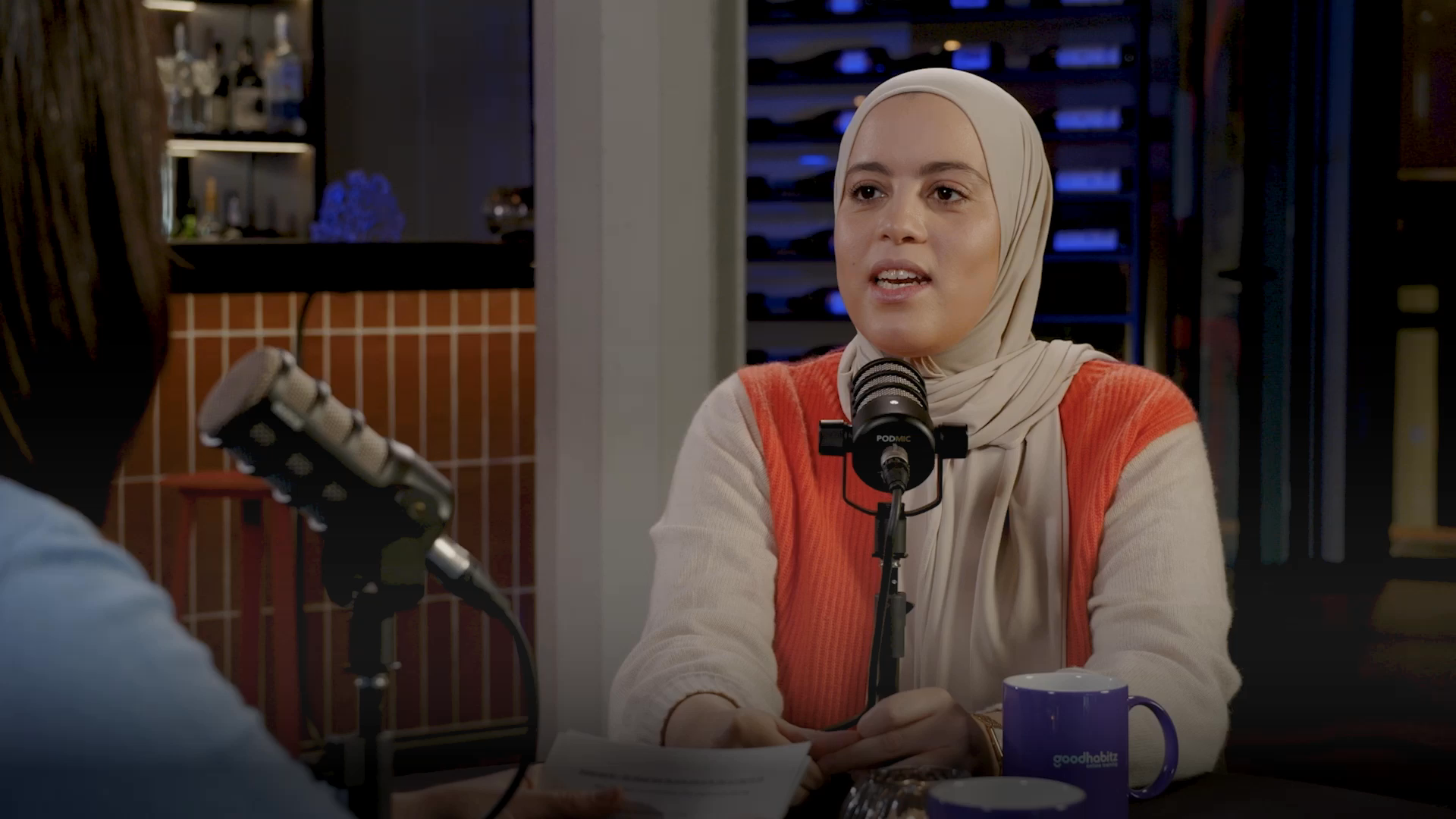Moving Forward on DE&I: A discussion with Hanan Challouki.
Diversity, inclusion, and equity probably aren’t new topics to your organisation. But what do these values mean when it comes to personal development? And how do you make sure everyone is included when it comes to learning? We talked about it with Inclusive Communication Expert Hanan Challouki in our latest podcast episode of Moving Forward. Listen to the entire episode here or read her main takeaways on the four statements we posed to her below!
“I think that many people still think it’s quite simple to tick the boxes of diversity and inclusion. For example, it’s very easy to bring a lot of different people into the same room. But say you’re having a meeting with those people. Who is speaking up? Who’s not afraid to share their ideas or share their expertise? Who feels smaller in the meeting, and who feels really big?” says Hanan.

According to her, there is a big difference between diversity and inclusion. Diversity is, according to Hanan, about observing the differences between people. Whereas inclusion is about working with those differencesto ensure that everyone feels included, respected, engaged, and heard within an organisation.”All of this shows that DE&I is much more than just simply bringing people of different walks of life together. It really takes time and effort to learning about the topic and create a support base for them in your organisation.
Hanan explains that often people assume her to only train HR managers or CEOs. However, when it comes to the topics of DE&I, she deeply believes everybody has a responsibility. “We are all colleagues working together for the same company. Everybody can have an impact. And as an organisation you can’t assume everyone knows how to behave in an inclusive way. That really takes training.”

Organisation should really train their employees to understand and behave in inclusive ways. And they can’t realise this by solely focussing on HR processes or inclusive leadership. Hanan believes that everyone should be included, as everyone can be a leader at work. That’s especially true when talking about social leaders. That automatically means that DE&I should be equally important to L&D and the rest of the organisation as it is to most HR departments at this point of time. Only then is it possible to build the support base you need to live up to these values and create an inclusive work environment.
Based on the previous takeaway, you can probably guess that Hanan strongly agrees with the fact that everyone can learn to become more inclusive. She often compares it to learning a language. “DE&I is like a language you need to learn how to speak. And that doesn’t come easy. It takes training, learning about the topic, and learning to talk to different people in a certain way so that they feel more included. Because you can have good intentions, but still have a negative impact when it comes to DE&I.”

This is something she explains with the example of Ramadan. It’s a month in which fasting Muslims are still too often confronted with micro-aggressions and inappropriate comments simply because other people don’t have any idea of what it means. This is where it comes in handy to teach employees how to have a meaningful conversation about the topic. Most people’s questions come from curiosity, which according to Hanan isn’t a bad thing, as it is one of the six traits of inclusive leadership. However, encouraging your employees to do a little research into the culture and backgrounds of the people they work with to enrich their (cultural) knowledge can move mountains when it comes to the basic DE&I skills of your employees.
“I think that many things are measurable. But first of all, we should wonder about the 'why'. Why do we need to measure the impact? I think inclusion especially is about people feeling good at work. And you can’t really put a price on people feeling happy at work.”
In add to that, Hanan explains that some things are easier to measure than others. For example, you could use a survey of your employees. But also, when you look at already existing research, it shows that diverse and inclusive work environments lead to better work environments with higher productivity, innovation, and impact. It creates better communication and, therefore, better collaboration, which means there is always a business case for DE&I. However, that shouldn’t always be the priority. According to Hanan, DE&I is all about taking care of your people in the first place.

Want to listen
to the full episode?
Discover more of Hanan Challouki's insights, tips and tricks in our podcast episode 'Learning the language of inclusion and diversity'.